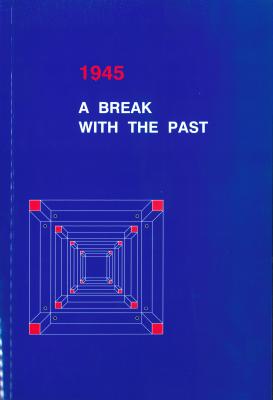Prelom s preteklostjo: Zgodovina srednjeevropskih držav ob koncu druge svetovne vojne
Ključne besede:
Srednja Evropa, 1945, druga svetovna vojna, okupacija, hladna vojnaKratka vsebina
The end of the war. The fighting is over, it is peacetime. The weapons fell silent, but the peace that came all over the world was actually a time of great unrest – a time of excitement, desire to act, to eradicate the consequences of the war, physical as well as spiritual, as soon as possible. Everyone yearned for life to get back to what was normal for peacetime as quickly as it could. The unrest, brought about by the end of the war, was a consequence of overall excitement, since many questions, conflicts and changes were caused by the war, and they all needed solving. It looked like the world as it existed until then and the relations between countries and allies of that time would change, and so would also individual countries themselves. Governments, political systems and borders would be altered. The end of the war undoubtedly drove a wedge between the old and the new. It brought about a transformation of attitudes and realities. However, the changes took various forms, occurred in different areas and were not equally intense. They varied from country to country.
Poglavja
-
The War is Over. What Now?, A Reflection on the End of the World War Two
-
From Monopolar to Bipolar World: Key Issues of the Classic Cold War
-
Czechoslovak Foreign Policy after World War Two. New Winds or Mere Dreams?
-
American Wartime Plans for a New Hungary and the Paris Peace Conference, 1941-1947
-
The Class and the Nationality: the Example of Trieste 1945
-
Population Transfers to and From Lower Silesia after World War Two
-
Communist Propaganda in the German Provinces Ceded to Poland (1945-1989)
-
How Not to Constitute a Minority. The Slovenians in Austrian Styria at the End of World War Two
-
Preparations of the Communist Party of Slovenia for the Takeover of Power 1944-1945
-
A Model for "People's Democracy"., Some Backgrounds of the Tito-Šubašić Provisional Yugoslav Government
-
Communist Authority and Opposition in Croatia after 1945
-
Opposition in Slovenia in 1945
-
Changes in Life Style and Social and National Structures in Slovenia after World War Two
-
The Slovak Question and its International Context during World War Two
-
Illusions of a "Final Victory" and the "Fate of Small European Nations"., Media and Propaganda of the Independent State of Croatia in 1945
-
Satisfaction of the Victors and Confirmation of the Defeated., Persecuting War Criminals in Slovenia 1945
-
Absent from Public Memory., Hidden Grave Sites in Slovenia 60 Years After the End of World War Two
-
German Scholarly Elites and Social-Ethnic Reorganization of Occupied Slovenia by the Third Reich
-
"German Science Committed an Offence"., German Life Sciences and Czech Post-War Reflections, 1945-1948
Literatura

Izdano
Zbirka
Tiskane izdaje ISSN
Licenca

To delo je licencirano pod Creative Commons Priznanje avtorstva-Nekomercialno-Brez predelav 4.0 mednarodno licenco.

